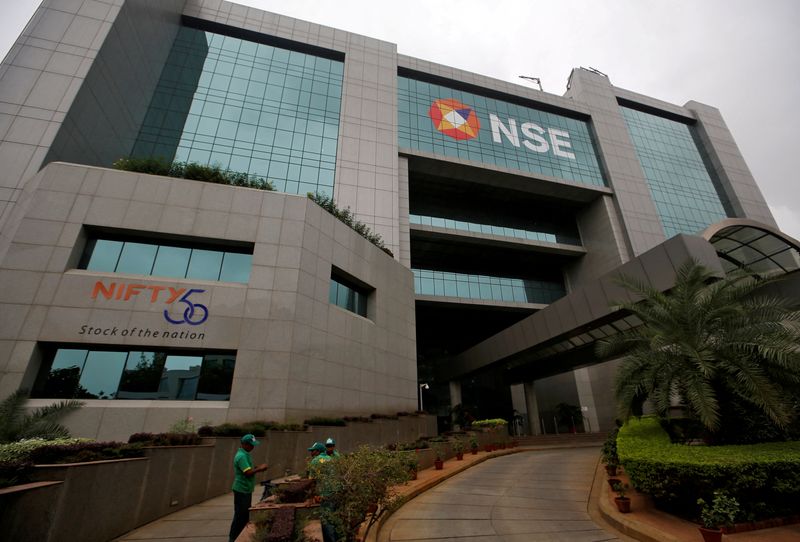By Patturaja Murugaboopathy
(Reuters) - Foreign investors have been cutting their holdings of Indian equities over the past few months, but domestic mutual funds, banks and insurance companies have helped put a floor under the market with their buying.
According to the data from National Stock Exchange of India, foreigners have sold $7.24 billion between Oct. 1 and Jan. 25, but domestic Indian institutions purchased $9.63 billion in that period.
Graphic: Domestic and foreign institutional investments in Indian markets- https://graphics.reuters.com/INDIA-EQUITYFLOWS/INDIA-EQUITYFLOWS/znvnejdenpl/chart.png
Analysts said the rise in domestic investments is due to the surge in retail interest in the equity markets as the country's young investors pick stocks over other traditional assets.
"People start to see rising incomes and put more money in investments for their future and there is a greater willingness to hold assets like equities. A few decades ago most people would only save in cash, jewelry or gold and property," said Herald van der Linde (NYSE:LIN), chief Asia equity strategist at HSBC.
"Hence, we see continued buying from retail investors. They buy ETFs, funds and pick stocks themselves too."
Data from Association of Mutual funds in India showed funds amassed 328 billion Indian rupees ($4.38 billion) through systematic investment plans (SIPs) in the fourth quarter of 2021, which was 40% higher than a year before.
Graphic: Mutual fund SIP flows into Indian equities- https://graphics.reuters.com/INDIA-SIPFLOWS/INDIA-SIPFLOWS/lbvgnjqkqpq/chart.png
SIPs are more popular among retail investors as they allow them to invest a fixed amount regularly, and their returns are less volatile than lump sum discretionary stock investments.
This domestic support could protect Indian markets against global volatility as the U.S. Federal Reserve gets set to raise interest rates rapidly in efforts to combat higher inflation.
Many emerging market stock indexes have slumped in the past few weeks as foreigners aggressively sold riskier markets, while chasing higher U.S. yields and preparing for a hit to earnings.
However, India's Nifty 50 index has shed just 2% so far this month, compared with MSCI Asia-Pacific index's decline of 5%.
Some analysts said India's higher stock valuations could deter foreign investors, but domestic investors would continue to accumulate shares.
According to Refinitiv data, India's large and mid-cap stocks' forward 12-month price-to-earnings ratio stood at 20.1, the highest in Asia.
Graphic: Valuations of Asian equities- https://graphics.reuters.com/INDIA-SIPFLOWS/INDIA-SIPFLOWS/lbvgnjqkqpq/chart.png
"In India alternative assets to hedge inflation are difficult to find, which, we believe, explains investors' liking for equities," said Manishi Raychaudhuri, Asia-Pacific equity strategist at BNP Paribas (OTC:BNPQY).
"That situation seems unlikely to change in the medium term, implying that domestic institutional investment flows could continue to remain a bulwark to the market."
($1 = 74.8510 Indian rupees)
(With additional reporting by Gaurav Dogra in Bengaluru; Editing by Vidya Ranganathan and Shailesh Kuber)
